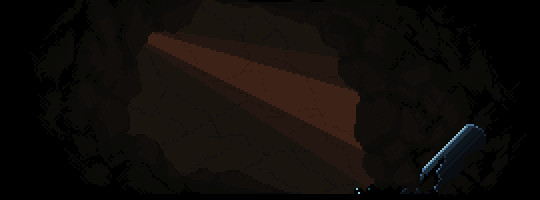The Language of Okoto
Chapter 6
In the previous post, we managed to break down the reconstructed term *toua into a few constituent parts and assign meanings to those parts. The element u translated to “skill, ability” and the element -a “general noun marker (person, object, thing)”, but the element to wasn’t fleshed out beyond the idea that it signified something like “greatness” and was somehow connected to the previously established word ta “?hoarding, ?grouping”. This post, we’ll try to get a bit more specific as to the meaning of this elusive element to in the contexts in which it arises. Let’s start with the following observation, which repeats what we already know:
Observation: The sequence /t/ plus /a/ or /o/ occurs in *toua “master, hero”, ta “group, hoard, collection”, and the word okoto.
Ideally, all of these surface forms could be related to a common root with a common meaning, thereby providing us with yet another lexical building block for our Okotoan glossary. With that goal in mind, we can use the regular sound change patterns we’ve already established to make a few deductions about what the “base form” of this /t+vowel/ sequence is. For example, the sequence /to/ shows up in both /toua/ and /okoto/, i.e. in the middle of a word and at the end of a word. If we decided to trace /to/ back to an older vowel-sequence like we did for /au/, /ui/, etc., we’d expect it to exhibit variation in these two positions. Instead, it’s identical (and in fact forms a part of a different vowel sequence /ou/ in /toua/). Now consider the sequence /ta/: it shows up only at the end of a word (cf. kuta); hence, if it traced back to an older vowel sequence, the sequence would have to be of the form /vowel+a/, since the other sound change rules all preserve the second vowel in word-final position. So it seems likely that /to/ in /toua/ and /okoto/ is the “base form”, while /ta/ is a form derived from an older stage /t+vowel+a/. Using these comparative deductions, we can arrive at the following proposals:
Proposal 1: The element to in *toua “master, hero” and okoto translates to “largeness, greatness” (parallel to Matoran nui “large, great”).
Proposal 2: The term ta “?hoarding, ?grouping” can be traced back to an older form *toa, consisting of the element to “greatness, largeness” combined with the element -a “general noun (person, object, thing)”, and can therefore be translated literally as “largeness of things (direct/concrete relation)”, or, more generally, as a noun signifying “hoard, group, collection”.
Phonological Rule 4:
Subpart 4a: /oa/ becomes /a/ word-finally. Example: /toa/ > /ta/.
Subpart 4b: /oa/ becomes /o/ elsewhere. No example available.
With that, we have managed to tie up the etymologies of both toa “master, hero” (< *toua, lit. “person of mastery [= ‘skill of greatness’]”) and ta “group, hoard, collection” (< *toa, lit. “largeness of things”) in a way that takes maximal advantage of their shared elements (e.g. to “largeness, greatness” and -a “general noun”) and follows the exact same phonological rules as every other etymological pairing.
The only thing left to comment on is the composition of the word okoto. I’ve already proposed that to translates to “greatness, largeness”, so that leaves only oko to decipher. Admittedly, there are very few cues left to us, at this point, and because this post is becoming overlong, I’ll simply leave it with the following proposal:
Proposal 3: The element oko translates to something that refers to a landmass or dwelling place, e.g. “land, place, home”, and it is modified by to “largeness, greatness” with a direct/concrete interpretation, hence “physically large”. This means that oko-to would translate roughly to “Great Land/Place/Home” (once again, parallel to the Matoran tradition of denoting placenames via the modifier nui “great”).
Recap:
- We have identified and extracted the common element to in the terms toa “master, hero”, ta “group, hoard, collection”, and okoto, defined this word-element as “largeness, greatness”, and provided an account of its appearance in each term.
- Along the way, we’ve derived a fourth phonological rule affecting the vowel-sequence /oa/ (> /a/ word-finally, /o/ elsewhere).
- Lastly, we’ve proposed a preliminary translation of the word okoto, consisting of the element oko and to: Okoto “Great Land/Place/Home”.
Current Glossary:
-a “general noun (thing, object, person)”
e “?making, ?creating”
eki “maker” (< *ekui)
ekimu “mask maker”
ki “agent” (< *kui)
kuta “hoarder” (< *kuita)
m- “covering” (basic stem)
ma “covering, mask”
makuta “mask hoarder”
mu “mask” (< *mau)
oko “?land, place, home” (unclear)
okoto “great ?land/place/home”
ta “hoard, group, collection” (< *toa)
to “largeness, greatness”
toa “master, hero” (< *toua)
tu “skill of greatness; mastery” (< *tou)
u “skill, ability”


0 Comments
Recommended Comments
There are no comments to display.